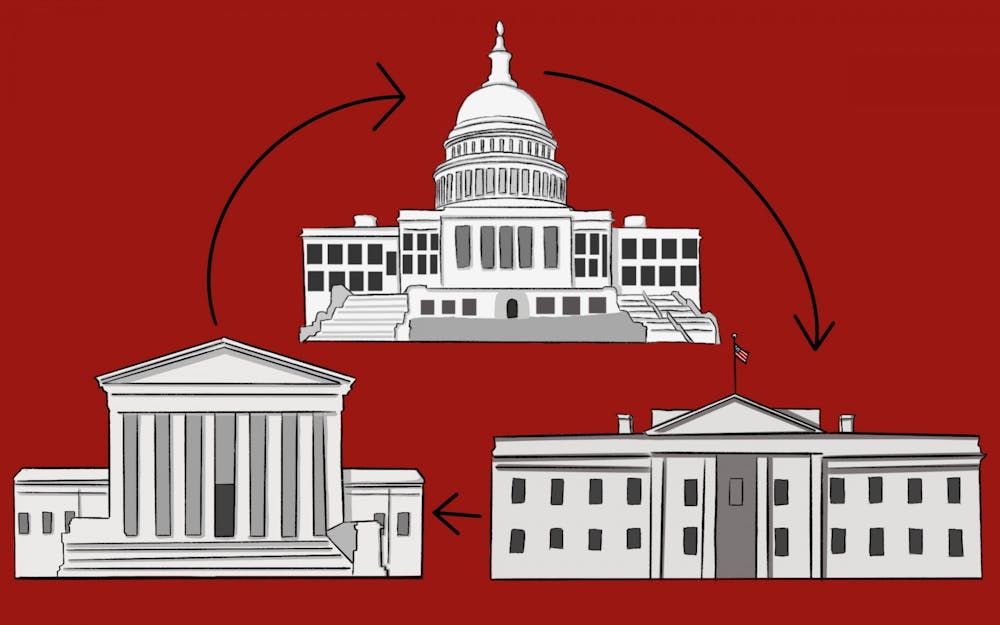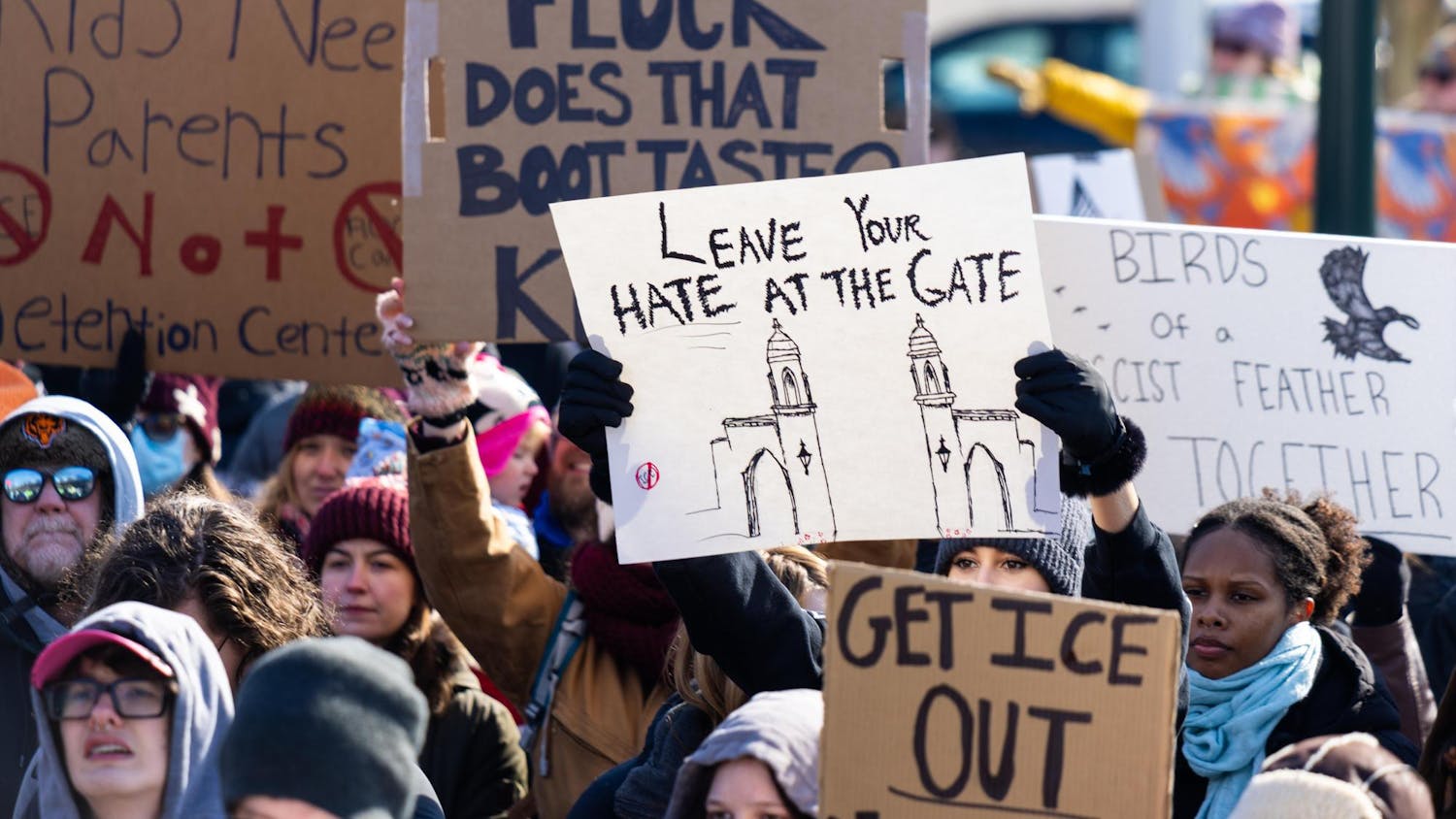Government exists not simply to govern citizens, but to control itself as well.
This not only applies to politicians and other public officials – this also extends to entire institutions. Governments must be effective in doing so while also changing to meet the needs of its citizens. Democracy should exemplify innovation and progress, so why does our Supreme Court wish to walk back decades of improvements?
Thankfully, the framers of the U.S. Constitution accounted for this. They understood that power needs to be checked in order to preserve a functioning democracy. From the inception of this nation, each branch of government has enjoyed a gradual increase in scope and power. But luckily, so has each branch's checks on the others.
This wasn't a new idea, not even at the time of the initial draft of the constitution. The concept of separated branches and subsequent powers of government was devised by Greek historian Polybius. He came to the conclusion that a system of separated powers – including the power to check the actions of other institutions – was necessary after thoroughly studying ancient Rome's government system.
Our Founding Fathers understood the necessity of this balance of power and authority and structured the government as such. James Madison wrote in the Federalist Papers, “In framing a government which is to be administered by men over men, the great difficulty is this: You must first enable the government to control the governed, and in the next place, oblige it to control itself."
Throughout our country's history, there have been numerous incidents of branches of government overstepping their affordance of power. Fortunately, even in the most egregious of attempts, these encroachments have always been prevented by one or both of the remaining branches.
During Franklin Delano Roosevelt's second term, the incumbent president feared the Supreme Court would kill many of his proposed policies. Because of this, Roosevelt asked Congress to authorize him to add six new seats to the Supreme Court.
As a result, many of the Supreme Court justices threatened to quit in protest. Then-Chief Justice Charles Evan Hughes wrote a letter to the Senate in opposition of this inquiry, and later, Justice Willis Van Devanter resigned, replaced by former Alabama Senator Hugo Black, shifting the court to a more liberal majority.
Now, our nation faces infringement from the Supreme Court. Yes, it's well within the scope of the Supreme Court to review past rulings and legal precedents. But when the court decides to unconstitutionally eliminate the rights of an entire group of Americans, one which was upheld by a second Court ruling over a decade later, it becomes necessary for their power to be checked.
In direct response to the overturning of Roe v. Wade and the overstepping of the Supreme Court, President Biden held that, regardless of state laws banning abortions, the Emergency Medical Treatment and Labor Act of 1986 protects any providers who offer life-saving abortion services in emergency situations.
This was further reaffirmed by the Department of Health and Human Services. In a statement by HHS, secretary Xavier Becerra said, “Today, in no uncertain terms, we are reinforcing that we expect providers to continue offering these services, and that federal law preempts state abortion bans when needed for emergency care.”
Our Founding Fathers were right to be concerned with overreaching branches of government – it was these sorts of transgressions they wished to deter. Although at times it may seem like many of their decisions and practices are antiquated and out-of-touch with today's society, the Founding Fathers got a few things right.
Sean Gilley (he/him) is a senior studying political science and economics with a certificate in informatics.






